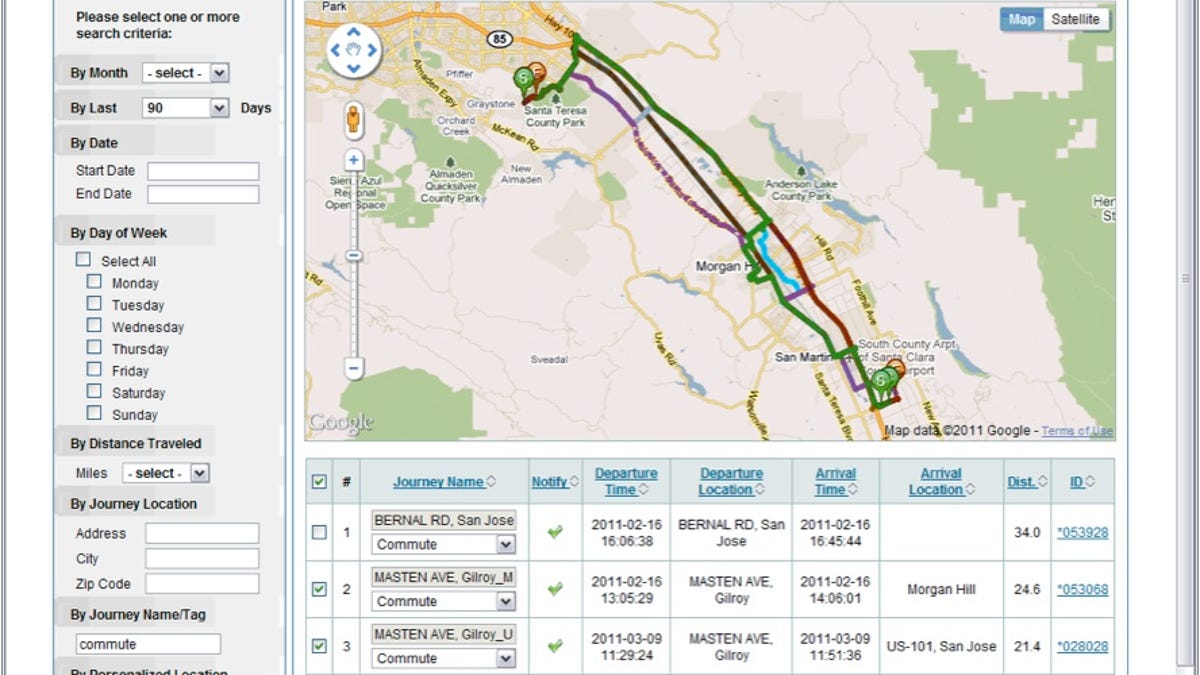IBM says it knows how bad your commute will be
A new service created by IBM Research, UC Berkeley, and Caltrans is designed to offer commuters predictive models about what their drive to work will be like in an hour.

If you're a commuter stuck in traffic, it doesn't help you all that much to know what road conditions are like right now. You already know you're being delayed. But what if there was a way to alert you to problems before you even get in your car?
That's the premise behind a new project being announced tonight by IBM Research, the California Department of Transportation (Caltrans), and the University of California at Berkeley's California Center for Innovative Transportation (CCIT).
The idea behind the project is simple: as a commuter, you're better off if you know what problems might await you on your normal drive, and even better off yet if an alternative route is automatically suggested to you.
The three partners think that the answer lies in a troika of building blocks: first, a system for measuring traffic; second, a system for predicting how traffic will react to accidents and other anomalies; and finally, a system for communicating information to people before they get on the road.
And that's just what the three have built, said Stefan Nusser, the director of services research at IBM's Almaden Research Center in San Jose, Calif.: a predictive modeling tool that can learn individual commuters' driving patterns and give them advanced warning on problems that may lie in their way.
Based on traffic information feeds coming in from CCIT, IBM's system is designed to run a traffic prediction, said Nusser, and send users alerts--perhaps text messages, e-mails, or even calendar or social networking pop-ups--in advance of their drives. But those alerts will only come if something is amiss--an accident, construction, or some other delay. That's because, Nusser said, if people are constantly getting alerts that don't mean much to them, they'll stop paying attention.
Currently, a group of people are involved in a test program and is carrying mobile devices with an installed client application. But rather than send information to the drivers while they're in their cars, IBM is intent on delivering the predictions to them before they depart.
That's why, Nusser said, the client application has no user interface and as such, isn't meant to be used by commuters while on the go. Rather, the mobile application is meant solely for gathering and feeding traffic data back to IBM's systems for analysis. After all, Nusser said, IBM doesn't want users fiddling with their mobile devices while behind the wheel.
Ultimately, IBM sees this kind of service as one it can sell to cities and municipal transportation agencies that want to create new relationships with citizens and riders. One idea the company has is that the system may be able to tell users that although their normal route to work might be slower than usual, there's a parking spot at the train station and the trains are running right on time.
For now, the system is only in trials, but Nusser said he envisions it being rolled out in cities in the near future. Whether or not people will adopt something like this depends, of course, on how well it works, and how unobtrusive it is.
But there is already evidence that traffic and transportation portals like 511.org in the San Francisco Bay Area can provide commuters with a wide range of information about getting around. So IBM and its partners are betting services like that will be very interested in branching out and giving users the kind of up-to-the-minute data that will help everyone get more out of their commutes.

